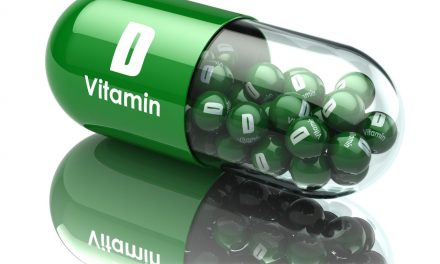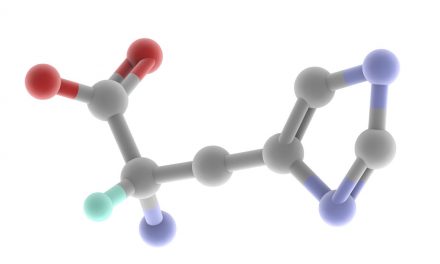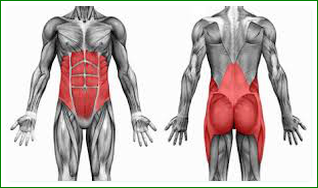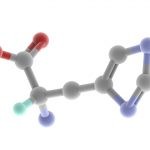Vitamin B1
Vitamin B1, also known as Thiamine, is a water-soluble vitamin of the B complex. It is named B1 because it was the first B vitamin discovered. Thiamine is found in both plants and animals and plays a crucial role in certain metabolic reactions. We need this vitamin so that our body can use dietary carbohydrates and fats as energy. In fact it is essential for glucose metabolism, since it is a key player in the production of adenosine triphosphate (ATP), which every cell uses for energy.
In addition to its role in energy production, vitamin B1 has also an important role in the structure and integrity of the cells of the brain and is fundamental for nerve, muscle and heart function.
Like other B complex vitamins, thiamine is sometimes called an “anti-stress” vitamin because it may strengthen the immune system and improve the body’s ability to withstand stressful conditions.
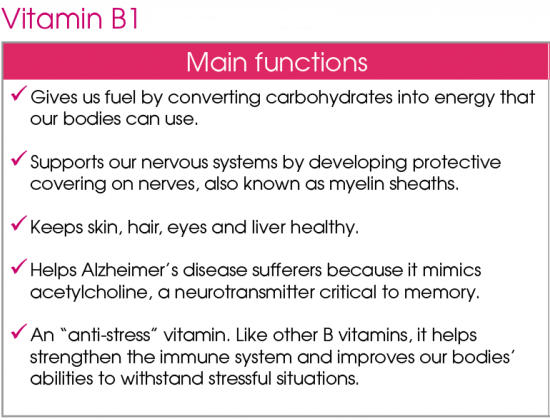
Where to find Vitamin B1
Vitamin B1 is found in high concentrations in the outer layers and germ of cereals, as well as in yeast, beef, pork, nuts, whole grains, and legumes. Thiamine is also present in cauliflower, liver, oranges, eggs, potatoes, asparagus and kale, pasta, legumes and watermelon.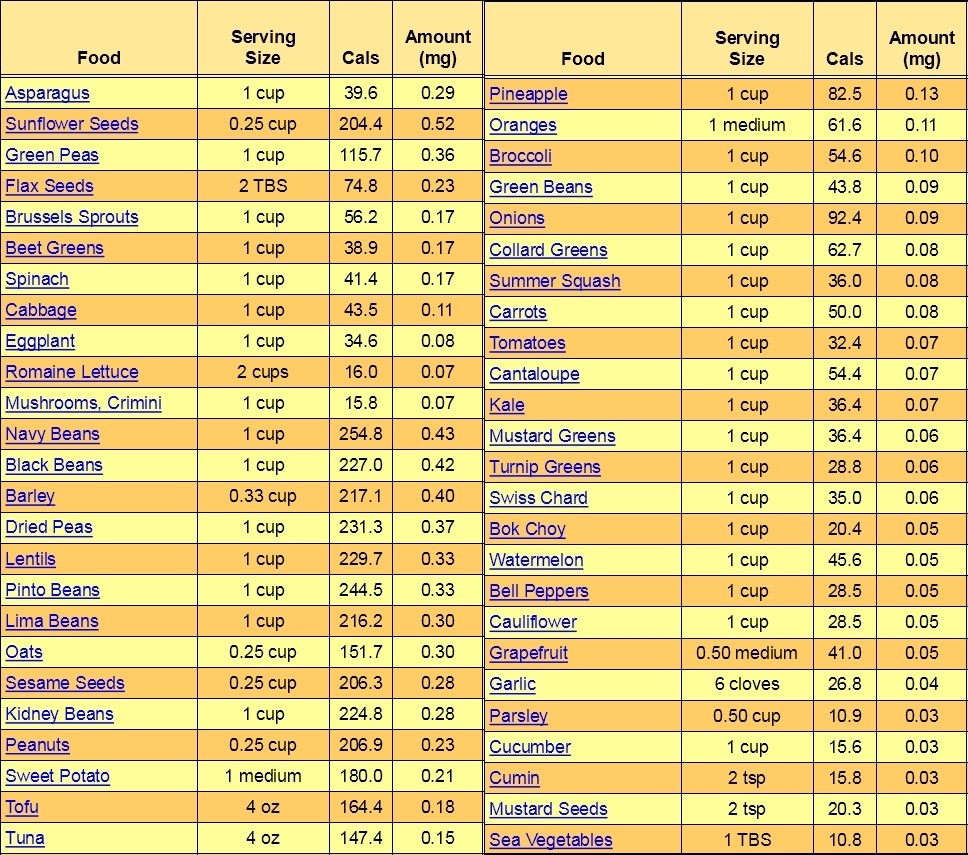
Deficiency
Because of the central role of vitamin B1 to energy metabolism, deficiency of this nutrient impairs nearly every important function in the body.
Vitamin B1 deficiency commonly leads to problems in the nervous system.
This vitamin has been linked to many varied conditions, from alcohol-related brain disease to Alzheimer’s and Parkinson’s diseases. If the deficiency is very advanced, or occurs at a critical period of brain development, the damage can be quite severe.
Severe and prolonged vitamin B1 deficiency could also affect the heart, and digestive function, among other areas. People with heart failure, gastrointestinal disease, and diabetes all have increased risk of vitamin B1 deficiency. Elderly people are at increased risk of vitamin B1 deficiency. This is, at least in part, due to a reduction in the ability to absorb dietary vitamin B1 that occurs.
Alcohol abuse is the most well-known inhibitor of vitamin B1 nutrition in humans, since alcoholics use more vitamin B1 in the detoxification of alcohol, often eat less vitamin B1 due to poor dietary habits, have trouble absorbing vitamin B1 in the intestine.
*****
